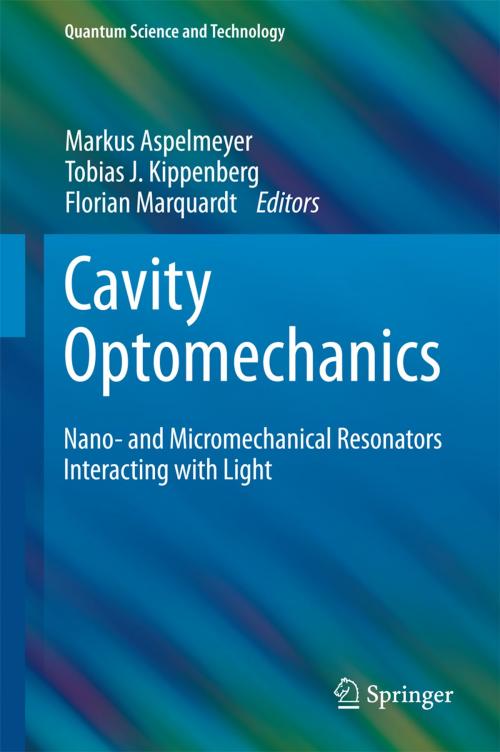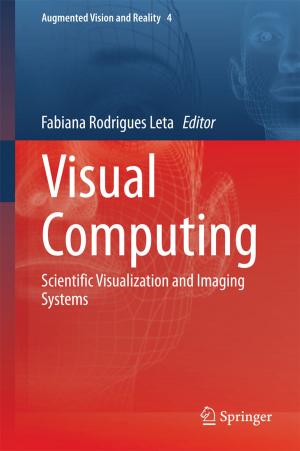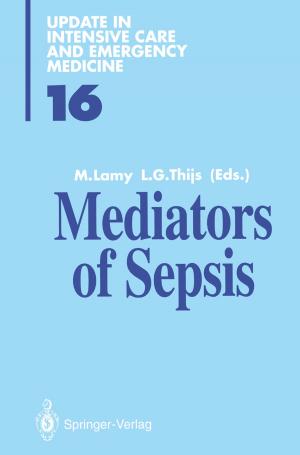Cavity Optomechanics
Nano- and Micromechanical Resonators Interacting with Light
Nonfiction, Science & Nature, Technology, Nanotechnology, Science, Physics, Electricity| Author: | ISBN: | 9783642553127 | |
| Publisher: | Springer Berlin Heidelberg | Publication: | July 5, 2014 |
| Imprint: | Springer | Language: | English |
| Author: | |
| ISBN: | 9783642553127 |
| Publisher: | Springer Berlin Heidelberg |
| Publication: | July 5, 2014 |
| Imprint: | Springer |
| Language: | English |
During the last few years cavity-optomechanics has emerged as a new field of research. This highly interdisciplinary field studies the interaction between micro and nano mechanical systems and light. Possible applications range from novel high-bandwidth mechanical sensing devices through the generation of squeezed optical or mechanical states to even tests of quantum theory itself. This is one of the first books in this relatively young field. It is aimed at scientists, engineers and students who want to obtain a concise introduction to the state of the art in the field of cavity optomechanics. It is valuable to researchers in nano science, quantum optics, quantum information, gravitational wave detection and other cutting edge fields. Possible applications include biological sensing, frequency comb applications, silicon photonics etc. The technical content will be accessible to those who have familiarity with basic undergraduate physics.
During the last few years cavity-optomechanics has emerged as a new field of research. This highly interdisciplinary field studies the interaction between micro and nano mechanical systems and light. Possible applications range from novel high-bandwidth mechanical sensing devices through the generation of squeezed optical or mechanical states to even tests of quantum theory itself. This is one of the first books in this relatively young field. It is aimed at scientists, engineers and students who want to obtain a concise introduction to the state of the art in the field of cavity optomechanics. It is valuable to researchers in nano science, quantum optics, quantum information, gravitational wave detection and other cutting edge fields. Possible applications include biological sensing, frequency comb applications, silicon photonics etc. The technical content will be accessible to those who have familiarity with basic undergraduate physics.















